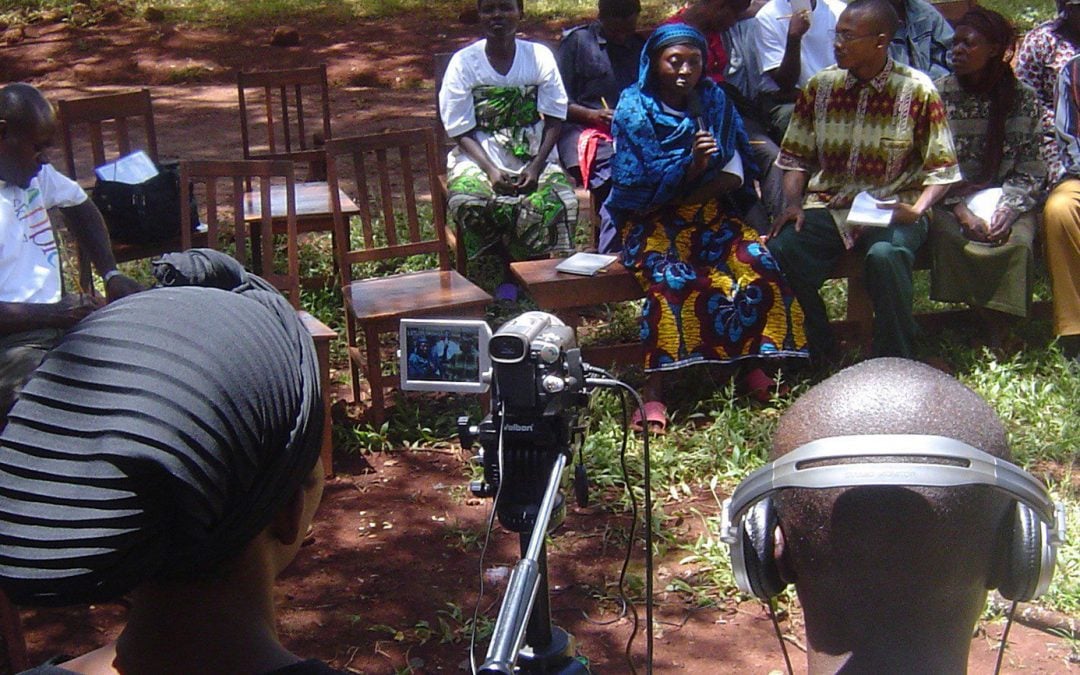Less than a month ago I attended the World Humanitarian Summit Global Consultation in Geneva. Beyond all the long panel discussions, and intense networking among the relatively exclusive crowd, I found myself in an Innovation Marketplace. While my stand (with my previous employer the CDAC Network) was not much more than recent publications and materials, eyes were drawn to a virtual reality experience which placed you in either Ebola-stricken Liberia or Al-Za’atari refugee camp – a fully immersive experience, captured on location with affected populations.
While I appreciate the intent of this work, and the empathy the experience is designed to engender, I couldn’t help but feel awkward observing suited-and-booted types laughing at the nature of the experience, and having difficulty in orientating themselves in a virtual-reality camp-city.
I didn’t end up watching the video, but my mind immediately wound up mooting the content of the material itself, and how it was captured. I had questions. What did the people captured on video think about being part of this experience? Did they see the results as going to people in ivory towers who are disconnected from their world? Trying to achieve something that isn’t possible, like walking in their shoes (from the safety of a conference centre)? Were the issues they raised actually addressed? Did anybody really care?
One might start to consider whether this sort of activity, which most likely came at some considerable cost, is more of a vanity project for HQ senior staff, than something that will impact the lives of the people we are here to help.
A colleague of mine recently directed me towards a certain storytelling initiative. The activities undertaken as part of this are primarily about educating youth with respect to using digital media, tell their story, and finding the confidence to do it. All great stuff, but another component of the initiative was to extract these stories and show them to western audiences.
I’d like to reiterate that there is nothing intrinsically wrong with these sort of engagement activities aimed at HQ-level staff. They can have an impact and instill empathy in relatively powerful decision-makers, which in turn can end up affecting the lives of communities in a significant way. While doing this, though, we can lose sight of the individual – the refugee, the Ebola victim, the struggling family. They can be forgotten, and this relates to how we as the humanitarian community relate to the stories they are giving us.
Take a refugee camp for example. In order for people to find their voice, they need to be listened to, and it is the humanitarian response community that needs to do this. But if we as a community only train refugees in telling their stories without addressing the challenges they express through dialogue in the camp itself, we will have missed an opportunity. The real stories of these refugees should capture their specific feedback on what is happening to them, what can be changed and made better about the aid they receive – how to give them their dignity back. This is actionable stuff, but aid agencies need to be ready, willing, and able to listen.
The Refugee Magazine from FilmAid is a good example of how a communications project can not only involve refugees in their production, but also bring outputs that can inform and entertain thousands.
The next time you start thinking about some sort of engagement or communications activity when we are ‘capturing voices’ of, say, refugees. Think about what they really need, what their concerns and fears are, and how this can not only be communicated to governments, aid agencies, and the actors immediately empowered to make changes, but that these agents are able to bring these voices – this feedback – into their programming and plans for the assistance they provide.
Photo credit: FilmAid International
We’re always looking for great stories, ideas, and opinions on innovations that are led by or create impact for refugees. If you have one to share with us send us an email at [email protected]
If you’d like to repost this article on your website, please see our reposting policy.

